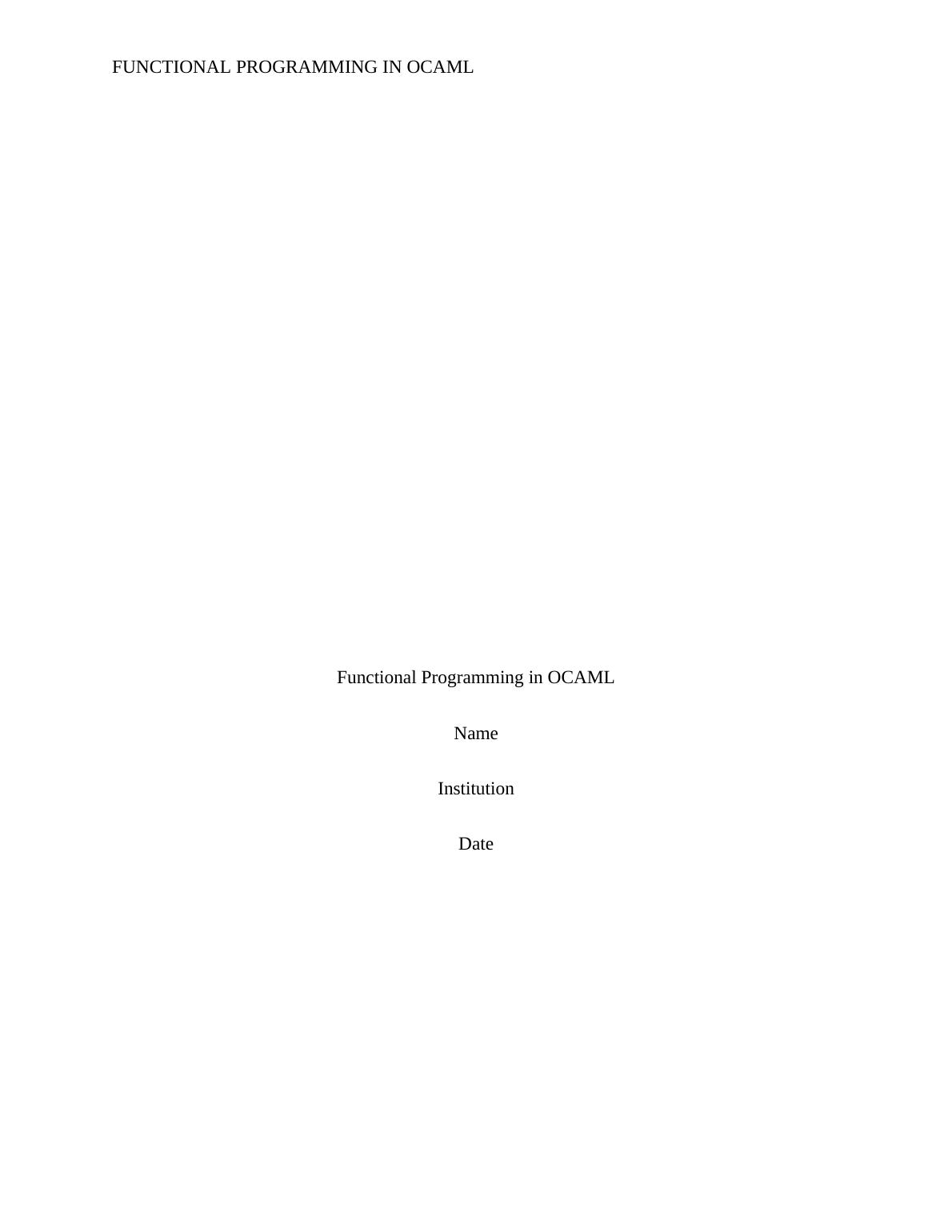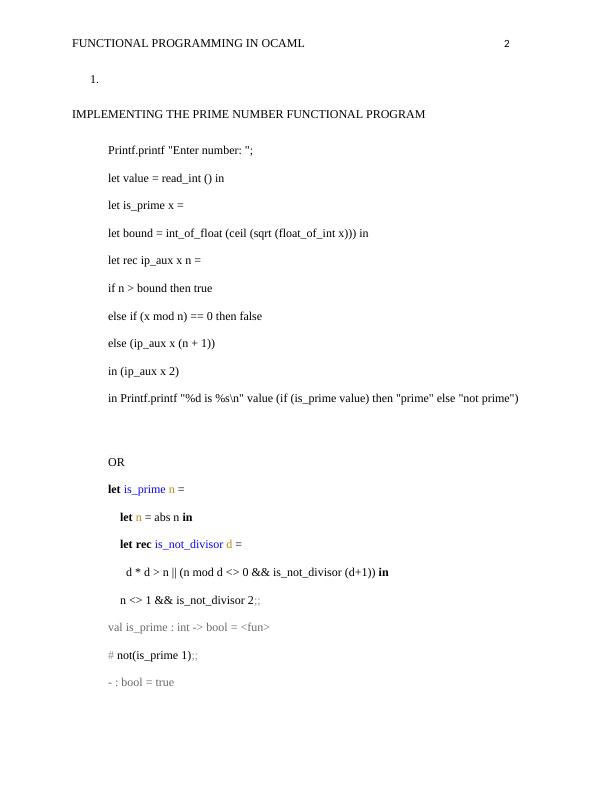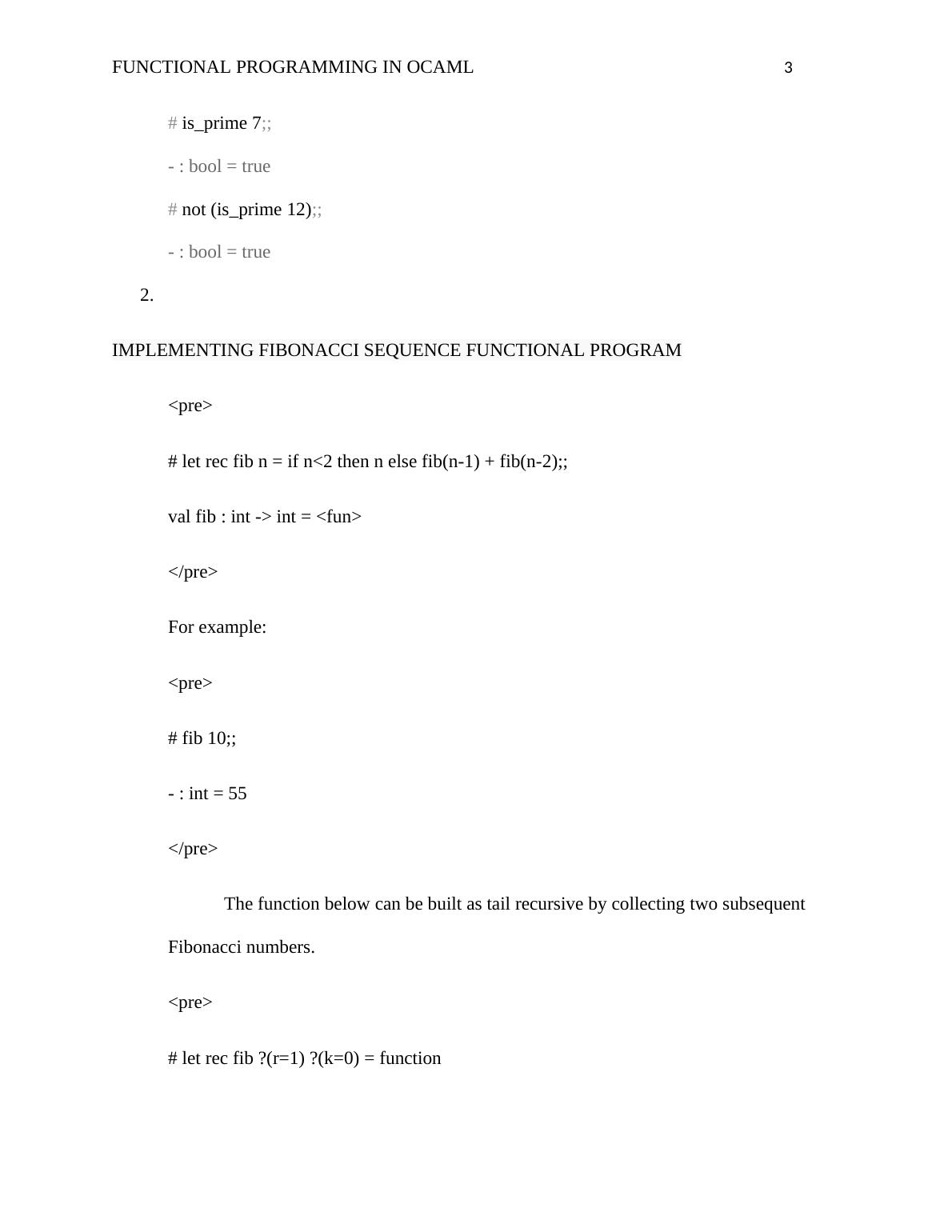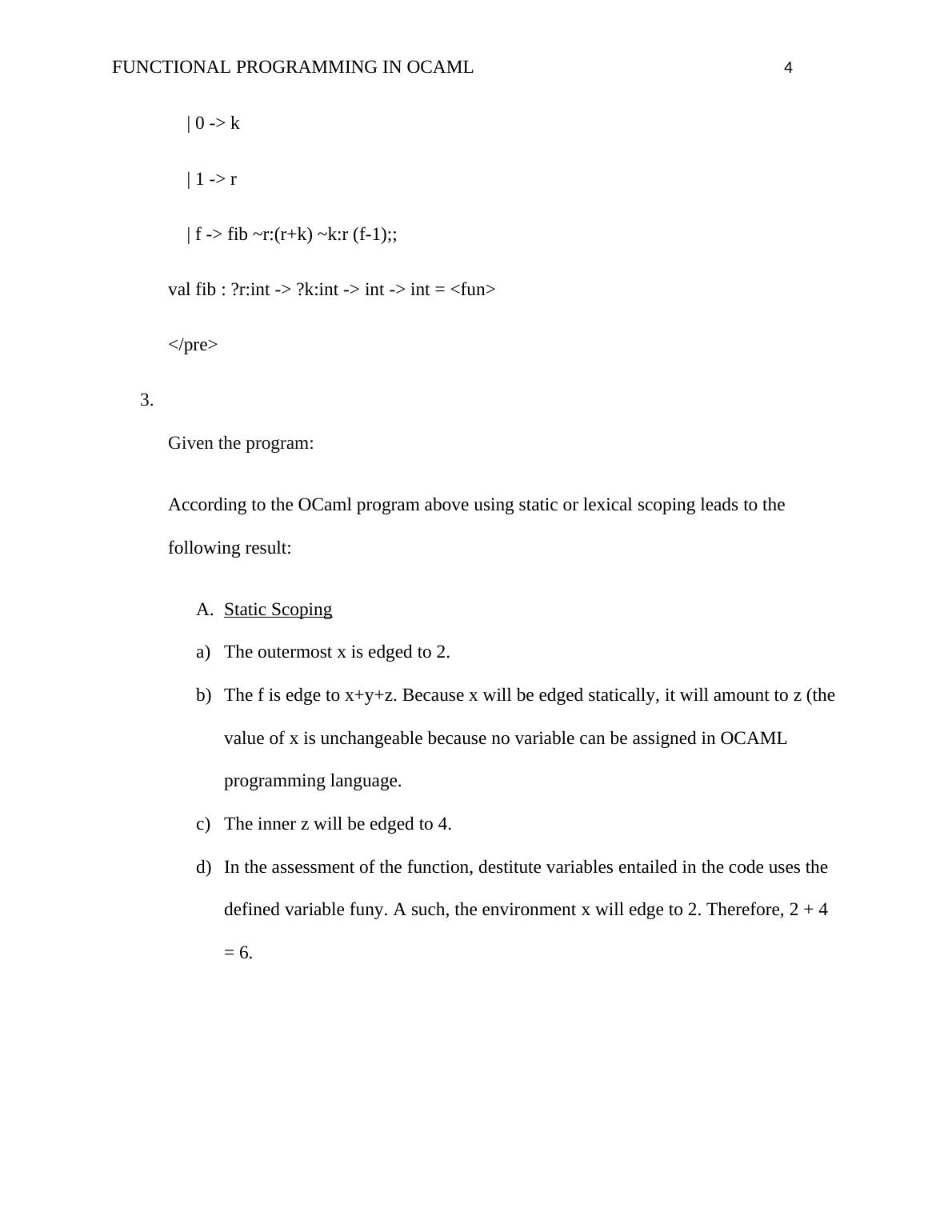Ask a question from expert
Functional Programming in ocaml PDF
13 Pages1646 Words132 Views
Added on 2021-09-14
Functional Programming in ocaml PDF
Added on 2021-09-14
BookmarkShareRelated Documents
FUNCTIONAL PROGRAMMING IN OCAML
Functional Programming in OCAML
Name
Institution
Date
Functional Programming in OCAML
Name
Institution
Date

FUNCTIONAL PROGRAMMING IN OCAML 2
1.
IMPLEMENTING THE PRIME NUMBER FUNCTIONAL PROGRAM
Printf.printf "Enter number: ";
let value = read_int () in
let is_prime x =
let bound = int_of_float (ceil (sqrt (float_of_int x))) in
let rec ip_aux x n =
if n > bound then true
else if (x mod n) == 0 then false
else (ip_aux x (n + 1))
in (ip_aux x 2)
in Printf.printf "%d is %s\n" value (if (is_prime value) then "prime" else "not prime")
OR
let is_prime n =
let n = abs n in
let rec is_not_divisor d =
d * d > n || (n mod d <> 0 && is_not_divisor (d+1)) in
n <> 1 && is_not_divisor 2;;
val is_prime : int -> bool = <fun>
# not(is_prime 1);;
- : bool = true
1.
IMPLEMENTING THE PRIME NUMBER FUNCTIONAL PROGRAM
Printf.printf "Enter number: ";
let value = read_int () in
let is_prime x =
let bound = int_of_float (ceil (sqrt (float_of_int x))) in
let rec ip_aux x n =
if n > bound then true
else if (x mod n) == 0 then false
else (ip_aux x (n + 1))
in (ip_aux x 2)
in Printf.printf "%d is %s\n" value (if (is_prime value) then "prime" else "not prime")
OR
let is_prime n =
let n = abs n in
let rec is_not_divisor d =
d * d > n || (n mod d <> 0 && is_not_divisor (d+1)) in
n <> 1 && is_not_divisor 2;;
val is_prime : int -> bool = <fun>
# not(is_prime 1);;
- : bool = true

FUNCTIONAL PROGRAMMING IN OCAML 3
# is_prime 7;;
- : bool = true
# not (is_prime 12);;
- : bool = true
2.
IMPLEMENTING FIBONACCI SEQUENCE FUNCTIONAL PROGRAM
<pre>
# let rec fib n = if n<2 then n else fib(n-1) + fib(n-2);;
val fib : int -> int = <fun>
</pre>
For example:
<pre>
# fib 10;;
- : int = 55
</pre>
The function below can be built as tail recursive by collecting two subsequent
Fibonacci numbers.
<pre>
# let rec fib ?(r=1) ?(k=0) = function
# is_prime 7;;
- : bool = true
# not (is_prime 12);;
- : bool = true
2.
IMPLEMENTING FIBONACCI SEQUENCE FUNCTIONAL PROGRAM
<pre>
# let rec fib n = if n<2 then n else fib(n-1) + fib(n-2);;
val fib : int -> int = <fun>
</pre>
For example:
<pre>
# fib 10;;
- : int = 55
</pre>
The function below can be built as tail recursive by collecting two subsequent
Fibonacci numbers.
<pre>
# let rec fib ?(r=1) ?(k=0) = function

FUNCTIONAL PROGRAMMING IN OCAML 4
| 0 -> k
| 1 -> r
| f -> fib ~r:(r+k) ~k:r (f-1);;
val fib : ?r:int -> ?k:int -> int -> int = <fun>
</pre>
3.
Given the program:
According to the OCaml program above using static or lexical scoping leads to the
following result:
A. Static Scoping
a) The outermost x is edged to 2.
b) The f is edge to x+y+z. Because x will be edged statically, it will amount to z (the
value of x is unchangeable because no variable can be assigned in OCAML
programming language.
c) The inner z will be edged to 4.
d) In the assessment of the function, destitute variables entailed in the code uses the
defined variable funy. A such, the environment x will edge to 2. Therefore, 2 + 4
= 6.
| 0 -> k
| 1 -> r
| f -> fib ~r:(r+k) ~k:r (f-1);;
val fib : ?r:int -> ?k:int -> int -> int = <fun>
</pre>
3.
Given the program:
According to the OCaml program above using static or lexical scoping leads to the
following result:
A. Static Scoping
a) The outermost x is edged to 2.
b) The f is edge to x+y+z. Because x will be edged statically, it will amount to z (the
value of x is unchangeable because no variable can be assigned in OCAML
programming language.
c) The inner z will be edged to 4.
d) In the assessment of the function, destitute variables entailed in the code uses the
defined variable funy. A such, the environment x will edge to 2. Therefore, 2 + 4
= 6.

End of preview
Want to access all the pages? Upload your documents or become a member.